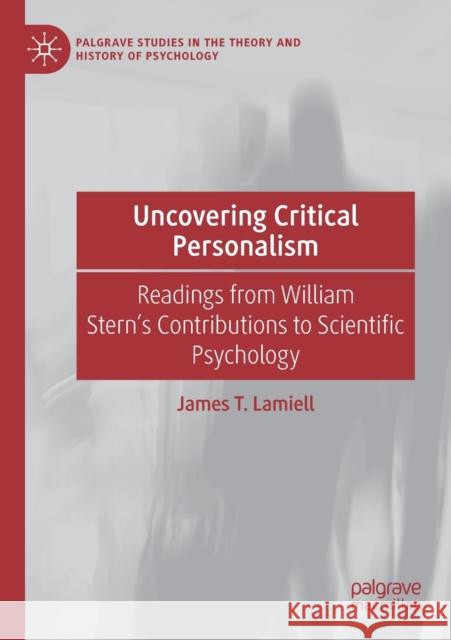Uncovering Critical Personalism: Readings from William Stern's Contributions to Scientific Psychology » książka
topmenu
Uncovering Critical Personalism: Readings from William Stern's Contributions to Scientific Psychology
ISBN-13: 9783030677367 / Angielski / Miękka / 2022 / 220 str.
Uncovering Critical Personalism: Readings from William Stern's Contributions to Scientific Psychology
ISBN-13: 9783030677367 / Angielski / Miękka / 2022 / 220 str.
cena 342,14
(netto: 325,85 VAT: 5%)
Najniższa cena z 30 dni: 327,68
(netto: 325,85 VAT: 5%)
Najniższa cena z 30 dni: 327,68
Termin realizacji zamówienia:
ok. 16-18 dni roboczych.
ok. 16-18 dni roboczych.
Darmowa dostawa!
Kategorie:
Kategorie BISAC:
Wydawca:
Palgrave MacMillan
Język:
Angielski
ISBN-13:
9783030677367
Rok wydania:
2022
Ilość stron:
220
Waga:
0.27 kg
Wymiary:
21.01 x 14.81 x 1.17
Oprawa:
Miękka
Wolumenów:
01
Dodatkowe informacje:
Wydanie ilustrowane











